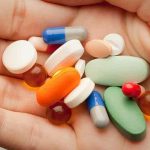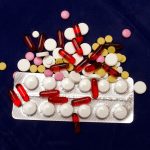List of Drugs That Can Cause Jaundice

Drug-induced jaundice, also known as drug-induced hepatotoxicity, occurs when certain medications or substances damage the liver, leading to elevated levels of bilirubin in the blood. Bilirubin is a yellow pigment produced during the breakdown of red blood cells, and elevated levels of it can cause the yellowing of the skin and eyes, which are characteristic symptoms of jaundice.
The prevalence of drug-induced jaundice varies depending on several factors, including the specific medications or substances involved, an individual’s susceptibility, and the population being studied. While drug-induced jaundice is not considered a common side effect of most medications, it can occur with certain drugs and in certain circumstances.
Some common symptoms of drug-induced jaundice include:
1. Yellowing of the Skin and Eyes (Jaundice): This is the most recognizable symptom. It occurs due to the buildup of bilirubin in the body.
2. Dark Urine: The urine can become dark yellow or brown due to the increased bilirubin levels.
3. Pale Stool: The stool may become clay-colored or pale, as bilirubin is not properly processed by the liver and excreted into the stool.
4. Abdominal Pain: Some individuals may experience abdominal discomfort or pain in the upper right side of the abdomen, where the liver is located.
5. Fatigue: Liver damage can lead to fatigue and weakness.
6. Nausea and Vomiting: Some people with drug-induced jaundice may experience nausea and vomiting.
7. Loss of Appetite: A reduced appetite can be a symptom.
8. Itching (Pruritus): Itchy skin can occur as a result of bilirubin accumulation.
9. Unintended Weight Loss: This can be a consequence of reduced appetite and liver dysfunction.
What Drugs Cause Jaundice In Adults?
Jaundice in adults can be caused by various medications, but it’s important to note that not everyone who takes these medications will develop jaundice. Here are some medications known to have the potential to cause jaundice in adults:
1. Acetaminophen (Tylenol): While acetaminophen is generally safe when used at recommended doses, excessive use or overdose can lead to liver damage, which may result in jaundice.
2. Isoniazid: This medication is used to treat tuberculosis (TB) and can occasionally lead to liver toxicity, which may cause jaundice.
3. Methyldopa: Methyldopa is an antihypertensive medication that may cause liver problems and, in rare cases, jaundice.
4. Erythromycin: Some antibiotics, including erythromycin, can cause liver dysfunction in certain individuals, resulting in jaundice.
5. Tetracycline: This antibiotic may lead to liver toxicity and jaundice in rare instances.
6. Azathioprine: Used as an immunosuppressant in conditions like rheumatoid arthritis or organ transplantation, azathioprine can cause liver problems, including jaundice.
7. Valproic Acid: This anticonvulsant medication may lead to liver issues, including jaundice, particularly when used at high doses or for extended periods.
8. Amiodarone: This antiarrhythmic medication can sometimes lead to liver toxicity, which may manifest as jaundice.
9. Statins: While uncommon, some statin medications, used to lower cholesterol, have been associated with liver abnormalities, including jaundice.
10. Herbal and Dietary Supplements: Some herbal supplements and dietary products may contain ingredients that can be harmful to the liver and result in jaundice when taken in excess or over extended periods.

What Drugs Cause Jaundice In Children?
Jaundice in children can be caused by various factors, including medications. However, it’s important to note that jaundice in children is more commonly associated with conditions like physiological jaundice (a normal condition in newborns) and underlying medical conditions rather than medications. Nevertheless, some medications can potentially cause jaundice in children, although these cases are relatively rare. Here are a few examples:
1. Acetaminophen (Tylenol): Just like in adults, excessive use or overdose of acetaminophen can lead to liver damage and jaundice in children. This is particularly a concern when caregivers give children incorrect doses.
2. Isoniazid: This medication, used to treat tuberculosis, can occasionally lead to liver toxicity and jaundice in children.
3. Antibiotics: Some antibiotics, such as erythromycin and tetracycline, can cause liver dysfunction and jaundice in both adults and children.
4. Valproic Acid: This anticonvulsant medication may rarely lead to liver problems and jaundice in children, especially at high doses.
5. Other Medications: There are other medications that, in rare cases, may lead to liver issues and jaundice in children. These can include specific antifungal drugs and immunosuppressive medications, among others.
It’s crucial to emphasize that the risk of children developing jaundice due to medications is relatively low, and most children will not experience this side effect. Caregivers should always administer medications to children according to healthcare providers’ instructions, including dosage and frequency.
What to do if you suspect Drug-induced jaundice?
If you suspect drug-induced jaundice or experience any symptoms that suggest a potential problem with your liver function while taking medication, it’s crucial to take the following steps promptly:
1. Stop the Medication: If you suspect that a specific medication is causing your symptoms, discontinue its use immediately. Do not stop any prescribed medication without consulting a healthcare professional, but if you believe an over-the-counter or non-prescription drug is the cause, stop taking it.
2. Seek Medical Attention: Contact your healthcare provider or seek immediate medical attention if you experience symptoms of jaundice or any unusual side effects. Your healthcare provider will be able to assess your condition, perform necessary tests, and determine the cause of your symptoms.
3. Do Not Restart Medication: Do not resume taking the medication until you have consulted with a healthcare professional. They will evaluate whether it’s safe to continue the medication or if an alternative treatment is needed.
4. Provide Information: Be prepared to provide detailed information to your healthcare provider about the medications you are taking, including prescription drugs, over-the-counter medications, herbal supplements, and dietary products. Include information on dosages, when you started taking them, and how long you have been using them.
5. Medical Evaluation: Your healthcare provider may conduct a thorough medical evaluation, including physical examinations and blood tests to assess your liver function. They may measure levels of bilirubin, liver enzymes (such as ALT and AST), and perform other tests to determine the cause of jaundice.
6. Follow Recommendations: Follow your healthcare provider’s recommendations regarding further evaluation, treatment, and any necessary changes to your medication regimen. This may include hospitalization if the jaundice is severe or if there is significant liver damage.
7. Monitor Symptoms: If you are advised to continue a medication, be vigilant about monitoring your symptoms and reporting any changes or worsening of jaundice-related symptoms to your healthcare provider.
8. Prevent Future Incidents: To prevent drug-induced jaundice in the future, always take medications as prescribed and under the supervision of a healthcare provider. Avoid self-medicating or taking medications in excessive doses. Inform your healthcare provider about any known allergies, existing medical conditions, or other medications you are taking.
9. Maintain Open Communication: It’s essential to maintain open and honest communication with your healthcare provider. Discuss any concerns or questions you have about your medications, their side effects, and any potential risks.
Remember that early detection and prompt medical attention are crucial in managing drug-induced jaundice. The condition can vary in severity, and timely intervention can help prevent complications and promote recovery. Always prioritize your health and safety, and do not hesitate to seek medical assistance if you suspect any adverse reactions to medications.





